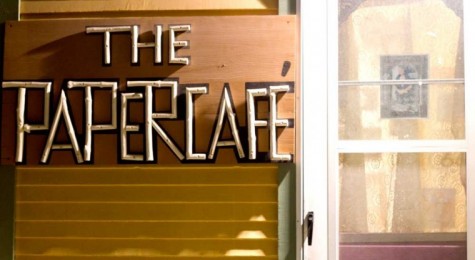Experts address pensions, role of state employees
Two experts in the fields of pension and legislation dove into the rising tide of what problems pension reform could cause to state employees Thursday.
About 25 members of Eastern’s chapter of the University Professionals of Illinois Local 4100 sat scattered throughout the Lumpkin Hall Auditorium, all facing John Miller, the statewide UPI legislative/political director, and Nick Yelverton, the legislative director of the Illinois Federation of Teachers.
The audience eagerly listened to the speakers with the goal of preparing strategies in anticipation of the General Assembly’s lame duck session in January, when pension reform will most likely take form.
The official dates of the lame duck session have not been publicized, but Miller predicts the session will occur between Jan. 2 and Jan. 8.
Miller, who is also the president of Western Illinois University’s UPI chapter and the vice president of the IFT, stressed that one of the biggest concerns regarding inevitable pension reform is that most people do not understand the issue.
“We use the language that it is a pension problem, but it is not; it is debt,” he said. “It is not pension debt. It is the debt the state owes.”
During the talk, Yelverton called attention to three numbers: $5.8 billion, $4 billion and $1.8 billion.
The $5.8 billion signifies the total amount of pension contributions for Fiscal Year 2013. This amount was paid in full by the state, unlike previous years when Illinois bonded out.
Ever since the inception of these pension programs, even since World War II, Illinois has never properly funded its pensions, he added.
The $4 billion reflects the amount of the $5.8 billion that is going directly toward the pension debt, which has grown past $80 billion in unfunded pension liability.
“That is not going toward your benefit — it’s not going toward honoring the amount that you contributed,” Yelverton said. “Seventy percent of our payment is going toward the interest on the pension credit card that has basically kept the state afloat fiscally by shorting pension funds and being able to fund other parts of government in order to avoid tax increases.”
He added most do not grasp that teachers do not receive social security; they do not have an underlying safety net protecting them from poverty if pension benefits are diminished.
The $1.8 billion serves as the amount that it costs to pay for pension benefits of public employees currently.
If costs were shifted to employers — like public universities, community colleges, school districts and others — they would be responsible for paying two-thirds of the $1.8 billion, Yelverton said, adding that a spike in tuition would be sure to follow.
Charles Delman, a UPI member and mathematics professor, said he found the talk to be substantive with preparing to advocate the interests of public employees.
“It was successful in terms of getting the appropriate overview of the political climate right now,” Delman said.
According to the Pew Center on the States, Illinois has the worst level of funding pensions in the nation, projected at less than 50 percent.
Miller said this puts Illinois at a great competitive disadvantage, especially with recruiting and retaining faculty and staff members.
He said the best way to make a difference is for members to contact their respective state senators and representatives to tell their personal stories and explain how diminishing benefits can harm them.
Yelverton added that one constituent amounts to the worth of 20 lobbyists.
“It is not enough for ourselves to be educated,” Miller said. “We need to educate the community around us.”
Rachel Rodgers can be reached at 581-2812 or rjrodgers@eiu.edu.

































































